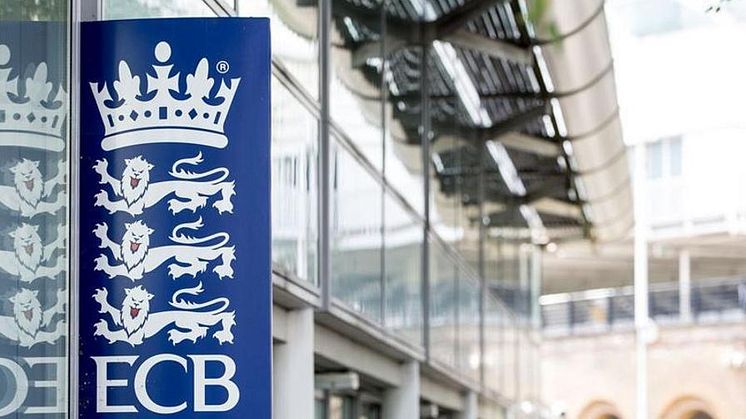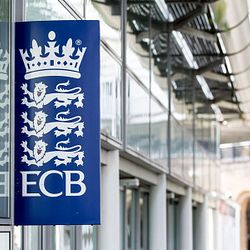
Press release -
CRICKET COMMITS TO ACTION PLAN TO TACKLE RACISM AND ALL FORMS OF DISCRIMINATION
Cricket today commits to a wide-ranging action plan to tackle racism and promote inclusion and diversity at all levels of the game. The plan has been developed jointly by the ECB, MCC, the PCA, NCCA Ltd, the First Class Counties, Women’s Regional Hosts and the Recreational County Cricket network, as a game-wide response to discrimination within the game.
While taking tangible and immediate action through the plan published today, cricket will continue to listen and learn from anyone who has experienced discrimination in the sport. Further work is being undertaken to examine these issues through the Independent Commission for Equity in Cricket and ongoing investigations into racism allegations and the handling of complaints made by Azeem Rafiq and others. Cricket’s leaders will also consult with independent third-party organisations with significant expertise in resolving similar issues. The game expects to take further action based on the findings and recommendations that come out of these processes.
The measures agreed today include a series of immediate changes as well as the instigation of a review period that will incorporate the work of the ICEC and other inquiries into discrimination in cricket. The initial aims include:
Understanding and educating more
1: Adoption within three months of a standardised approach to reporting, investigating, and responding to complaints, allegations, and whistleblowing across the game.
2: Full promotion of the aims of the Independent Commission for Equity in Cricket (ICEC) through proactive engagement with its investigations and recommendations.
3: Ongoing EDI training for all those who work in cricket, including all staff, volunteers, recreational club officials, umpires, directors, and coaches.
Addressing dressing room culture
4: A full review of dressing room culture in all men's and women's professional teams, both domestic and international.
5: Delivery of a redesigned programme of player and coach education, addressing any gaps identified through the dressing room review.
Removing barriers in talent pathways
6: Action to aid progress into professional teams of people from diverse backgrounds (especially South Asian, Black and less privileged youngsters) through measures to address i) talent identification and scouting, ii) education and diversity of coaches and iii) targeted support programmes for players from diverse or under-privileged backgrounds.
Creating welcoming environments for all
7: A full-scale review, in advance of the 2022 season, into the detection, enforcement, and sanctions against discriminatory and abusive crowd behaviour at each of our professional cricket grounds.
8: Delivery of plans (tailored to local communities) to ensure professional cricket venues are welcoming to all, including provision of accessible seating, food and beverage offering catering to all faiths and cultures, and the availability of facilities such as multi-faith rooms and alcohol-free zones.
9: Upgraded education in recreational cricket to ensure players, volunteers and coaches understand and champion inclusion and diversity in the game.
Publishing localised EDI Action Plans within six months
The ECB will today publish its 2021-2023 Equity, Diversity, and Inclusion (EDI) Action Plan with clear actions and targets. The ECB will then work with any of its memberswho do not yet have an EDI plan in place to create (or revise) their own localised version within six months, with actions to include:
10: A commitment to best practice governance with targets for Board diversity (30% female, locally representative ethnicity by April 2022) and plans to increase diversity across the wider organisation. (Compliance will be subject to a “comply or explain” provision to ensure Counties can respect their own governance processes in making the required change).
11: The introduction of fairer recruitment processes through measures including the immediate adoption of anonymised recruitment tools for senior roles, open appointment processes for all roles and the use of balanced and diverse panels to assess interviews.
12: Every senior executive employed across the game will have personal EDI objectives as part of their annual performance targets, driving leadership accountability.
To be transparent and build trust, the game will provide regular updates on progress against delivery of the action plan and EDI goals.
To underpin the actions being taken across the cricket network, the ECB has committed to providing additional resources and take several further steps in support of consistent progress across the game. These have been agreed with the game and will include:
- A review of governance and regulation in cricket to identify any opportunities to strengthen the structures and processes across the game
- £25 million of strategic funding over five years in support of EDI actions
- The formation of a new anti-discrimination unit, within six months, to ensure that the ECB has the right resources and capabilities to help tackle discrimination in all its forms and provide guidance to the wider game
- The inclusion, with immediate effect, of EDI minimum standards for all venues
- A link between funding and EDI minimum standards, including withholding central distributions where necessary to ensure all stakeholders meet agreed standards
- Collaboration with Sport England to help the whole game to achieve the increased diversity of Boards
Barry O’Brien, ECB Interim Chair, commented: ‘’There is no doubt this is a critical moment for cricket. After our all-game meeting last week, we said we must rise to the challenge and respond with one voice.
“We have now set out a series of game-wide commitments so that cricket can start to make the transformation that we know is needed. Change is required as a matter of urgency, but we also recognise that sustained action is required over months and years to achieve fundamental and long-lasting progress. This must begin today.”
Tom Harrison, ECB Chief Executive Officer, added: “For cricket truly to ‘connect communities and improve lives’ – our stated aim at the ECB – we must start by accepting that not enough has happened to make our game better, both inside our own walls and across the wider game. That is the only possible reaction to the powerful testimony of Azeem Rafiq and others in recent weeks.
“I am delighted that this plan represents the whole game coming together to commit to tangible action and meaningful change. Our role as the ECB will now be to acknowledge the changes that need to be made internally, as well as offer support, resource, and funding to assist the game in making these changes. We look forward to working with our partners across the game to create a stronger, more inclusive sport and build back the trust of everyone who loves cricket.”
Mike O’Farrell, Chair of Middlesex Cricket, commented: ‘’This has been a time of deep reflection across the sport. It was critical that we came together and agreed a way forward.
‘’All those involved in leading the game are aware of how fragile cricket’s future is if we do not address the issues laid bare by Azeem and others. More importantly, we realise how many people we have impacted by not acting together. We are all determined to act as one and implement these actions but also to keep listening in the coming months and adapt to all that we continue to learn.’’
Ends.
NOTES TO EDITORS:
Today’s commitments follow a meeting of representatives from the ECB, MCC, the PCA, NCCA Ltd, the First Class Counties, Women’s Regional Hosts and the Recreational County Cricket network last Friday at The Kia Oval. The whole game pledged to publish agreed actions this week. Please see below the full wording agreed by the game, which has been summarised in the above release.
The ECB has also today published its own EDI action plan which is available here.
The Game Wide Commitments
We as a game are committing to a 5-point plan, with 12 tangible actions, that will help create a culture to eliminate discrimination. Our aim is to make cricket the most open and inclusive sport in the country. We will:
(A) Listen, care and educate ourselves |
|
1: Whistleblowing: To set up and adopt a standardised approach to reporting, investigating, and responding to complaints, allegations, and whistleblowing across the game, within three months. To review, learn from and take action based on findings. 2: Engage with ICEC: To fully promote the aims of the Independent Commission for Equity in Cricket (ICEC), proactively engage with its investigations and recommendations (published Summer 2022). 3: Continuous Education: All those who work in cricket will be provided with ongoing EDI training. This will cover all staff, volunteers, recreational club officials, umpires, directors, and coaches. |
(B) Address dressing room culture |
|
4: Review Dressing Room culture: We commit to working with the ECB and PCA to undertake a full review of dressing room culture in all international and domestic teams. Findings will be published and used to inform future training. 5: Player & Coach Education: Reassess player and coach education. Work alongside the PCA to redesign the ongoing training programme and address any gaps identified through the dressing room review. |
(C) Remove barriers in the talent pathway |
|
6: Talent Pathway: We will remove structural and cultural barriers in our elite talent pathways. We must improve support for people from diverse backgrounds, especially South Asian, Black and less-privileged youngsters. We will identify and remove barriers to progress into our professional teams. Our insights show that the specific barriers vary across counties. However, these fall into three broad themes: player identification, player support, and coach education and diversity. ECB will work with each County to identify each County’s unique challenges before addressing these challenges with partners to support delivery. County plans will cover:
|
(D) Create welcoming environments for all |
|
Prior to the 2022 season, each County will address: 7: Crowd behaviour: Conduct full-scale review into the detection, enforcement, and sanctions against discriminatory and abusive crowd behaviour in each of our professional cricket grounds. 8: Welcoming stadia: To immediately begin delivering against enhanced EDI criteria when hosting international and major matches. All 18 FCCs and MCC will create plans tailored to local communities to ensure venues are welcoming to all. These will include, but not limited to; accessible seating, food and beverage provision that caters to all faiths and cultures and the availability of appropriate facilities that are inclusive for all (multi-faith rooms, alcohol-free zones etc) 9: Recreational Cricket: Upgrade education, training, and ongoing campaigns in recreational cricket to ensure all players, volunteers and coaches through the recreational game understand and champion inclusion and diversity in the game. |
(E) Publish localised EDI Action Plan within 6 months |
|
The ECB will shortly publish its 2021-2023 equity, diversity, and inclusion (EDI) Action Plan with clear actions and targets. The ECB will then work with The MCC any County that does not have an EDI plan in place to create their own localised version within six months*. These actions will be specific to each County but will all incorporate the following: 10: Best practice governance: A commitment to best practice governance. Included in this, each organisation will deliver Board diversity (30% female, representative ethnicity) by April 2022. Compliance will be subject to a “comply or explain” provision to ensure Counties can respect their own governance processes in making the required change. Each county will also develop plans to create greater organisational diversity – with a specific focus on gender and localised ethnicity representation. 11: Fairer recruitment: To immediately adopt anonymised recruitment tools for all senior roles. To run an open process for all roles and ensure each interview process is assessed by a balanced and diverse multiple-person panel. 12: Leadership accountability: From 2022, every senior executive employed across the game will have personal EDI objectives as part of their annual performance targets. *Note: Some Counties already have an existing EDI Action Plan, in which case this will be a review of the plan |
Categories








